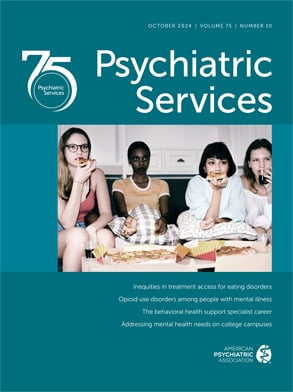This past year, in our work with homeless persons suffering the effects of mental illness and addiction, a young man took his life under our watch. Ironically, it came at a time when he appeared very stable: he had just obtained housing, had recently started a new job, and was abstinent from all substances, and his symptoms of schizophrenia were seemingly well controlled. But his extended time on the streets and in the shelters had clearly branded him with a devastating affliction. Years of obtaining his drugs as a prostitute had scorched his psyche with indelible memories and intolerable images of violence and exploitation. At the beginning stages of his treatment, he had revealed a nightmarish existence of homelessness, hopelessness, and unmitigated shame that had led to multiple attempts to end his life.
Drawing upon our collective, albeit anecdotal, clinical experiences, we have found that most of the homeless persons we evaluate acknowledge having suicidal thoughts or plans during some stage of their painful odyssey. Far too many, whether or not they are in formal treatment, have made serious attempts to kill themselves. Nearly all meet the classic criteria that place them into that nebulous category of being a high suicide risk: social isolation, serious mental illnesses, active substance use, extreme poverty, and previous attempts. But our work engages only the survivors. Also important is the larger challenge of adequately assessing the prevalence of suicide among homeless persons, whose desperation frequently goes unrecognized and whose actual cause of death remains unclear.
It can be strongly argued that a review of the current literature reveals an overall paucity of research addressing the issue of suicide among homeless adults. One might speculate, perhaps, that so little information is available because of onerous methodological or complicated research design issues. Nevertheless, what does a clinician answer when asked where suicide ranks as a cause of death in this population? Are there particular risk profiles of homeless individuals who completed suicide that can be used by clinicians or shelter providers to identify those most in need of intervention? Indeed, do we even have a reasonable, evidence-based estimate of how many homeless persons die each year in this country from ultimate and irrevocable acts of self-destruction? We know of one such person. We are desperate to prevent others from a similar fate. With so many vulnerable lives at stake, the call for clinically applicable research could not be more urgent.

